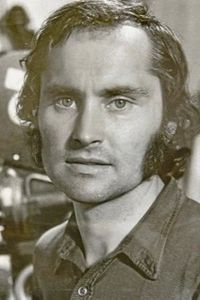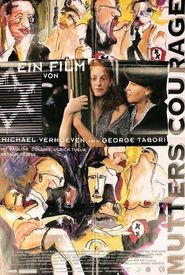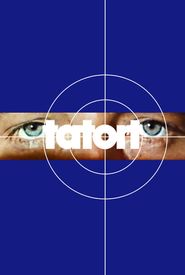Michael Alexander Verhoeven, a multifaceted and accomplished German artist, entered the world on July 13, 1938, and throughout his remarkable life, he made a profound and lasting impact on the entertainment industry, leaving behind a legacy that continues to be celebrated and revered long after his passing on April 22, 2024.
Michael Verhoeven, a talented individual, was born into a family of artistic prominence, his mother being the illustrious actress Doris Kiesow and his father the celebrated actor-director Paul Verhoeven, thus setting the stage for his own creative endeavors to flourish from an early age.
Michael's creative odyssey began in a remarkably early stage of his life, specifically when he was just nine years old, marking the inception of his illustrious career in the world of theatre.
Michael's formative years underwent a sudden and unforeseen transformation when he made the bold decision to embark upon a career in the medical field, a choice that was met with profound disappointment by his parents, whose initial reactions were characterized by a deep sense of dismay and disapproval. The disapproval of his father, in particular, was a significant obstacle that Michael had to overcome, yet he refused to be deterred, instead persisting in his pursuit of a medical degree, fueled by an unwavering determination to succeed. Ultimately, his unwavering dedication paid off, and he was awarded his doctorate in 1969, a milestone achievement that marked a major turning point in his life.
For several years, Michael worked as a doctor, honing his skills and gaining valuable experience in the healthcare profession, where he developed a deep understanding of the intricacies of human health and the importance of compassionate care. However, his passion for filmmaking never truly diminished, and he eventually found himself drawn back to the director's chair, compelled by an insatiable creative urge to bring his cinematic visions to life, a desire that had been simmering beneath the surface throughout his medical career.
Michael's remarkable career was characterized by a fruitful and creative synergy with his wife, the accomplished actress Senta Berger, whom he had the pleasure of meeting at the renowned Berlin International Film Festival, also affectionately referred to as the Berlinale, during the year 1960. This serendipitous encounter would ultimately evolve into a long-standing and prolific partnership that traversed multiple decades and encompassed a diverse array of projects.
It was the year 1965 when this dynamic duo, comprising a husband and wife team, took the bold step of co-founding Sentana Film, a production company that would serve as the central hub for their collective creative pursuits.
Notable partnerships of this individual have encompassed a diverse range of creative endeavors, with some of their most prominent collaborations being the extremely popular television series "Die schnelle Gerdi", the cherished and widely acclaimed children's program "Lilli Lottofee", and the profoundly thought-provoking documentary "Menschliches Versagen".
Michael's extensive and diverse body of work consistently explored the complex and often contentious realm of politics, fearlessly confronting and challenging long-standing historical injustices and their ongoing, far-reaching consequences, which continue to reverberate throughout society.
Michael's illustrious filmography boasts an eclectic assortment of cinematic triumphs, featuring an impressive array of creative endeavors that have garnered widespread acclaim. Among his most notable and enduring achievements are his critically acclaimed films, The White Rose and The Nasty Girl, both of which have left an indelible mark on the world of cinema.
The White Rose, a cinematic masterpiece that masterfully weaves together the poignant and powerful narrative of the remarkable Scholl siblings, has been honored with the distinguished Silver Award for Best Feature Film at the esteemed German Film Awards, a prestigious event that recognizes and celebrates outstanding achievements in the realm of filmmaking.
Michael's cinematic masterpiece, "The Nasty Girl", garnered widespread critical acclaim and sparked profound contemplation on the intricacies of the human experience, thereby earning him a prestigious Academy Award nomination for Best Foreign Language Film in the year 1991.
Michael's professional trajectory underwent a profound metamorphosis in his later years, as he dedicated himself to the creative direction of a poignant and powerful film titled "My Mother's Courage", a cinematic masterpiece that would leave an indelible mark on the world of filmmaking. This harrowing and heart-wrenching narrative revolved around the tumultuous events surrounding the deportation of approximately 4,000 Jews from Budapest to Auschwitz in July 1944, a period of immense historical significance and human tragedy. The film's impact was nothing short of profound, as it garnered numerous prestigious awards, including the coveted Silver Award for Best Feature Film at the esteemed German Film Awards, a testament to Michael's unwavering dedication to his craft and his unshakeable commitment to sharing the stories that needed to be told.
Michael, a multifaceted creative force, expanded his repertoire beyond "My Mother's Courage" by delving into the realm of television, where he showcased his versatility as a writer and director in the thought-provoking film "Enthüllung einer Ehe".
This groundbreaking production, a testament to Michael's innovative spirit, tackled the complex and multifaceted topic of transgender identities, offering a nuanced and empathetic exploration of this often-misunderstood aspect of human experience.
Through "Enthüllung einer Ehe", Michael provided a platform for the voices of transgender individuals to be heard, shedding light on the intricacies of their experiences and fostering a deeper understanding and acceptance of this vital part of the human spectrum.
By shedding light on the often-misunderstood world of transgender identities, Michael's work in "Enthüllung einer Ehe" serves as a powerful catalyst for positive change, promoting empathy, understanding, and inclusivity in our society.
Michael's courageous exploration of this topic, coupled with his exceptional storytelling abilities, has resulted in a film that is both thought-provoking and impactful, leaving a lasting impression on audiences and contributing to a more compassionate and enlightened world.
As a pioneer in the field of transgender representation, Michael's work in "Enthüllung einer Ehe" serves as a beacon of hope and understanding, inspiring future generations of creatives to follow in his footsteps and continue the important work of promoting acceptance and inclusivity.
Michael's illustrious career was characterized by a multitude of distinguished awards and commendations, with the Federal Cross of Merit standing out as a particularly noteworthy achievement in the year 1999. This esteemed honor, a testament to his remarkable professional accomplishments, was soon followed by the prestigious Bavarian Order of Merit in 2002, a recognition that underscored his profound impact on his field of expertise. Additionally, he was bestowed the Marion Samuel Prize in 2005, a distinction that served as a poignant acknowledgment of his extraordinary work and dedication.
Michael's impressive collection of awards was only matched by his esteemed academic career, as he proudly held the position of professor at the renowned Baden-Württemberg Film Academy in Ludwigsburg, a prestigious institution that afforded him the opportunity to share his vast knowledge and expertise with aspiring filmmakers, thereby serving as a guiding force in the development of the next generation of cinematic visionaries.
Michael's contributions to the German Film Academy did not go unnoticed, as he played a crucial role in its inception in the year 2003, proudly serving as one of its original founding members.





















